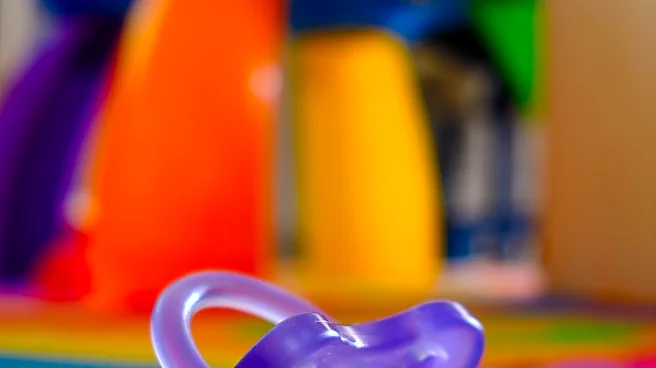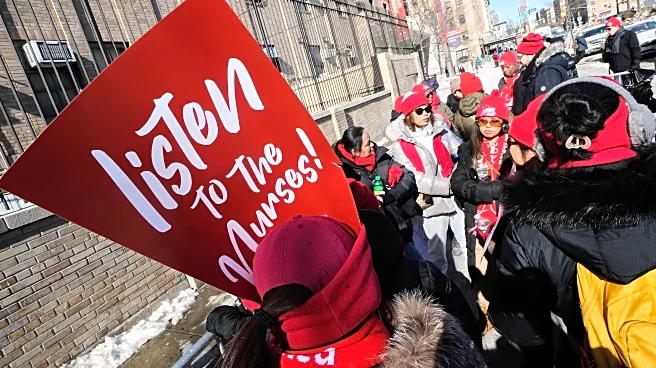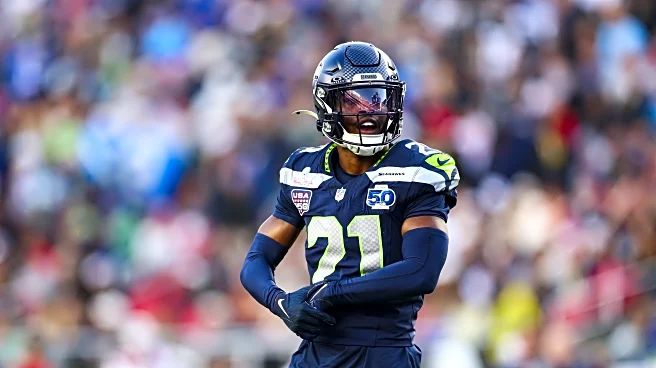What's Happening?
The Blind Children's Center in East Hollywood, Los Angeles, is providing specialized early education for infants, toddlers, and preschoolers with visual impairments. The center uses tools like light boxes, braille writers, and magnifying devices to help
children develop awareness of objects, light, and color. Lessons incorporate smell and touch, using real objects to enhance learning experiences. The center serves as a regional resource, addressing the needs of over 11,000 visually impaired children under age 11 in Los Angeles County. It offers individualized learning plans to prevent developmental delays and integrates services such as physical and occupational therapy.
Why It's Important?
This initiative is crucial as it addresses the largely under-diagnosed visual impairments among children under age 5, providing them with the necessary support to thrive. By offering tailored educational programs, the center helps prevent potential developmental delays, ensuring that children with visual impairments receive the same opportunities as their peers. The inclusive approach fosters a supportive community, integrating children with disabilities alongside typically developing children, which can enhance social skills and emotional development. This model could serve as a blueprint for other regions seeking to improve early childhood education for children with special needs.
What's Next?
The center plans to continue expanding its services, potentially increasing its capacity to accommodate more children with visual impairments. It may also seek additional funding to enhance its programs and facilities. As awareness of the importance of early intervention grows, other child care centers might adopt similar approaches, leading to broader systemic changes in early childhood education. The center's success could inspire policy changes at the state or national level, advocating for increased support and resources for children with disabilities.
Beyond the Headlines
The center's work highlights the importance of inclusivity and accessibility in education, challenging cultural stigmas associated with disabilities. By fostering acceptance and understanding, the center not only supports children but also educates families and communities. This approach could lead to long-term societal shifts, promoting greater empathy and support for individuals with disabilities. Additionally, the center's focus on individualized learning plans underscores the need for personalized education strategies, which could influence broader educational reforms.

















